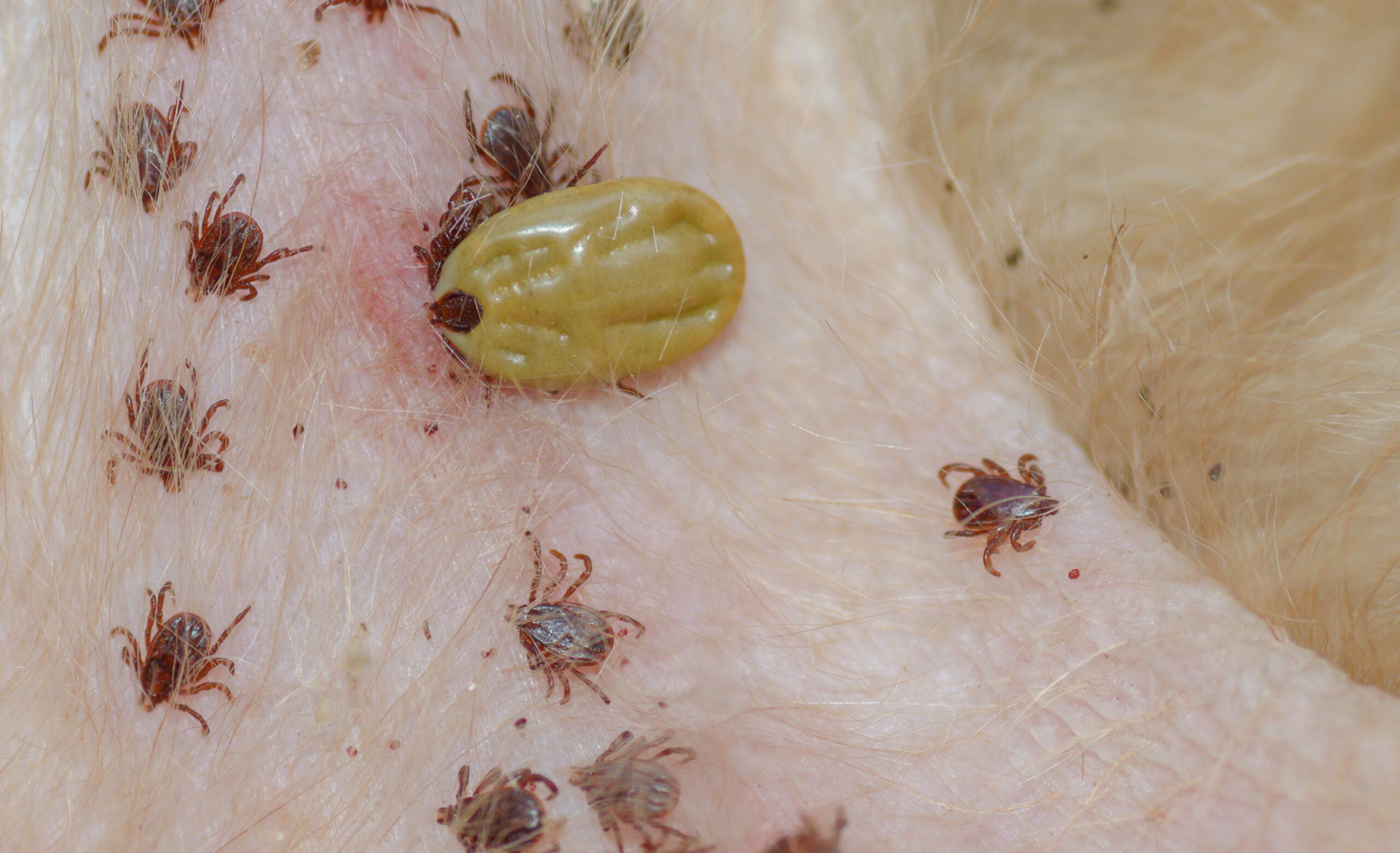
Not a very pleasant subject but pet owners need to be aware of the danger of ticks and the harm that they pose not only to our beloved pets but also to ourselves. Ticks are most active from Spring though to Autumn so now is the time to be vigilant!
Ticks are part of the arachnid family, closely related to spiders, they carry diseases, so it is important to remove any that attach to your pet as soon as possible, the longer they remain on your pet, the greater the risk of disease transmission.
Where are they?
Ticks are commonly found in grassy areas and woodlands; however, they can be lurking in your garden, especially if you have wildlife visiting. They are also found in areas where there is a large population of sheep or deer.
The life cycle of the tick is quite long (around 2 years) – egg, larva, nymph and adult. Most of the life cycle is spent on the ground, ticks only need to feed once in each life stage (lymph, – adult). Once the tick has received a blood meal, it will drop off the host and moult into the next stage. The most common tick in the UK is the Sheep Tick (Ixodes ricinus) which, despite its name, will feed from a wide variety of mammals and birds.
How do they attach?
Ticks do not jump or fly, they wait for a host (either animal or human), to brush past when they will attach to the skin or coat.
What are the dangers?
Infected ticks carry nasty diseases, the most common one being Lyme Disease. This is a very serious bacterial infection. Humans can become infected with Lyme Disease which can have long lasting debilitating effects, this can be treated with antibiotics if treated early, for more information visit www.lymediseaseaction.org.uk.
How to protect our Pets?
The best way to protect your pet is to apply a monthly topical Spot-On Treatment, this will make sure that, should a tick attach, it will be killed before it has a chance to transmit disease. The other thing to do, is to remove ticks as soon as you see them – our handy Tick Remover will remove them quickly and efficiently.





